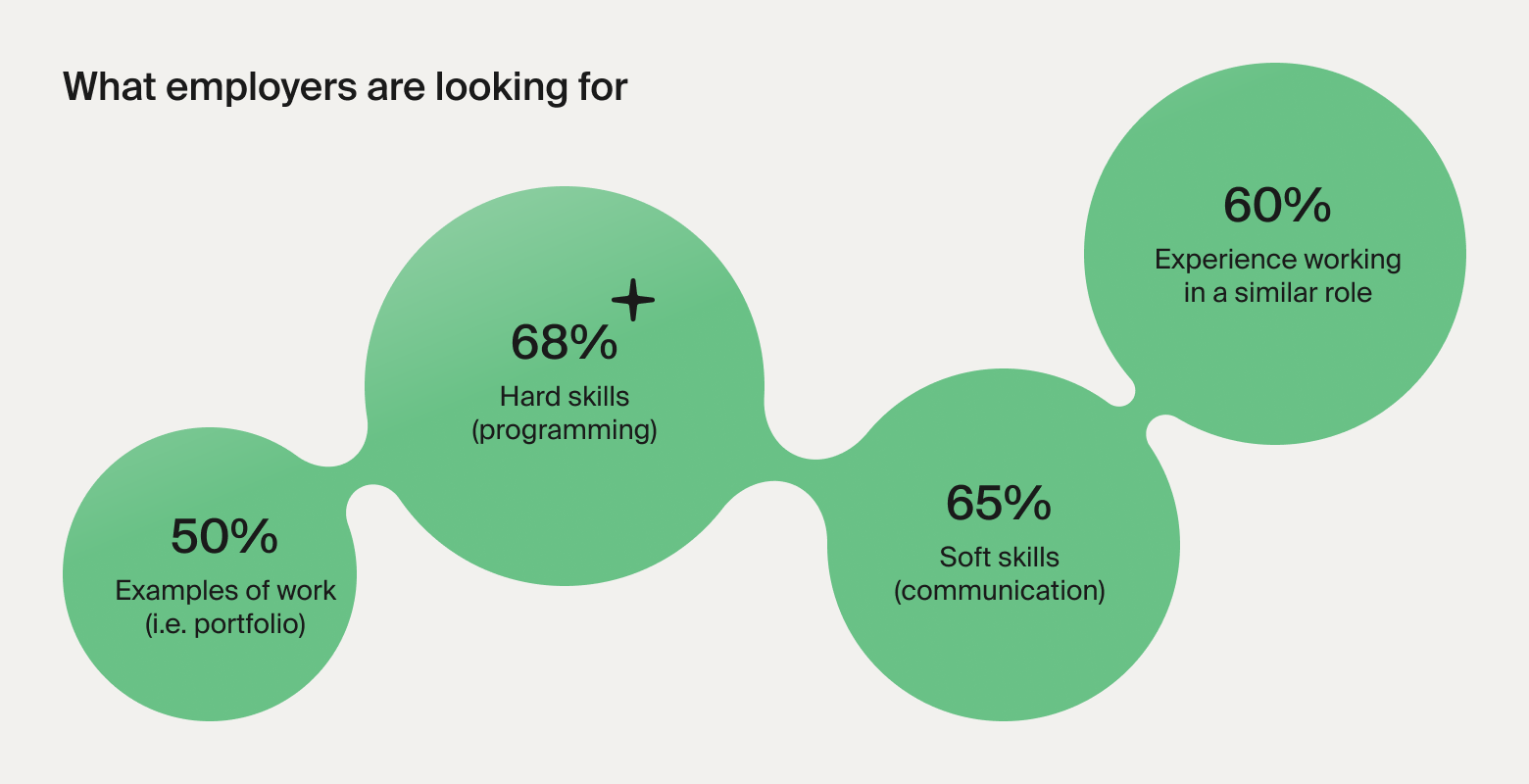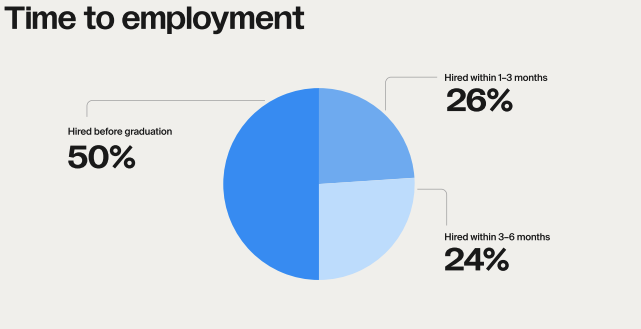Ready for a change in career, but feeling torn between entering tech or the trades?
It’s no easy decision, especially since both industries are attractive for all the right employment reasons: Healthy salaries, better work-life balance, and a plethora of roles that experts say are more resilient to artificial intelligence (AI) and automation.
But while tech and the trades look equally good from the outside, a closer inspection reveals stark differences in their accessibility, earning potential, and job outlook. Here’s why we believe working in tech is the best bet — and how to tell if it’s the right move for you, too.
Why tech is the right shift to make
Wherever you’re coming from job-wise, the good news is you probably have the foundation you need to launch into your next professional chapter. That’s because every role and educational experience, regardless of capabilities required, develops important soft skills employers across both industries value — like communication, problem solving, teamwork, and learning agility.
With that being said, here are three core reasons that make tech a smart move for anyone looking to change professions. Plus, how those same criteria compare for roles in the trades.
The salaries
Earning better pay is one of the top reasons people get into tech. And it’s easy to see why when they can make an average of $27,000 more per year than their previous profession. But that’s not to say the trades don’t provide wage growth, too, because they do. It’s just not as dramatic.
For example, take three common roles in tech: Software engineer, information security analyst, and data scientist. Assuming a starting salary of $53,490 per year (the annual mean wage for a full-time worker in the US), they offer an average 129% increase in earning potential.
| Tech Role | Median Annual Salary | Job Growth Outlook Through 2033 |
| Information Security Analyst* | $120,360 | 33% |
| Software Engineer** | $130,160 | 17% |
| Data Scientist*** | $108,020 | 36% |
In comparison, three of the higher-paying trades jobs — welders, electricians, and plumbers — only offer a 7.2% increase on the annual mean wage for a full-time worker in the US. That’s nothing to sneer about, to be sure, but these roles also have significantly less expected growth.
| Trades Role | Median Annual Salary | Job Growth Outlook Through 2033 |
| Welders, Cutters, Solderers, Brazers | $48,940 | 2% |
| Electrician | $61,590 | 11% |
| Plumber | $61,550 | 6% |
The demand for tech skills
Now, you might be wondering about the stability of tech careers. There’s no denying plenty of growth is on the horizon for tech roles like the ones above, but what about all those tech layoffs?
The short answer is that at the low end, BLS data projects tech employment will grow twice that of the average, while at the high end, it will skyrocket — increasing nine times the average. That’s a lot of opportunity through 2033 to realize your professional goals.

Plus, once you gain specialist knowledge in your chosen tech profession, you’ll remain in-demand for companies throughout the economy, from healthcare to insurance and beyond, making your pivot to tech the only one you’ll have to make. And because tech is always evolving, it provides plenty of room for growth and learning new things along the way.
Examples of technical skills that can help keep you relevant and employed in tech include:
- Programming and coding languages: The building blocks of all software — which ones you learn depend on your chosen career. Some of the more popular programming languages are Python, JavaScript, SQL, Java, C and C++, C#, and Go.
- Data visualization: Data analysts use tools like Tableau, Power BI, or Matplotlib to create visually appealing charts that communicate insights effectively to stakeholders, e.g. project managers, executive leaders, etc.
- Debugging and testing: After code is written, it must be tested for errors and debugged before being released to users. While AI and other tools facilitate this process, a strong foundation in testing and debugging helps you understand why errors happen at all.
Faster entry into the workforce
You probably already know that trades careers offer shorter training times than a four-year degree. But did you also know that you don’t need a college degree to break into tech? In fact, professional bootcamps like TripleTen take just between four and ten months to complete — all while offering flexible learning schedules that fit around your current job and life commitments.
Another factor to take into consideration in the tech versus trades decision is licensing requirements. Skilled trade workers, such as electricians, plumbers, and contractors, need to pass a licensing exam to obtain proof of experience, meet local regulations and laws, and even qualify for business insurance. That’s just one more step to factor into your career pivot timeline.In contrast, 87% of TripleTen graduates land jobs within six months of finishing the program. Among that cohort, half land jobs before even finishing the bootcamp. Best of all, 90% of employed TripleTen alums stay with their first employer for at least a year.

Don’t get us wrong: we love the trades
After reading all this, if you’re still feeling called to the trades, we celebrate your decision. After all, the future needs to be built by smart, capable individuals who are passionate about what they do. If it so happens that your path calls you to a life working in heating, ventilation, air conditioning (HVAC), or as an electrician, plumber, painter, or carpenter, then we rest easy knowing that our physical infrastructure is in your capable hands.
Think tech is right for you? Discover your path
If you’re curious to learn more about what a future in tech can look like for you, we’re here to help. Our two-minute career quiz is a low-stakes way to explore your options and see where your interests can take you next, based on the strengths you already possess. In just a few questions, you’ll receive a suggested career track in tech, average salaries, and even potential job titles for inspiration. Think of it as step number one in a journey that you get to plan. What you do with your quiz results is totally up to you!

.avif)




%20(1).avif)





.avif)




.avif)
.avif)

